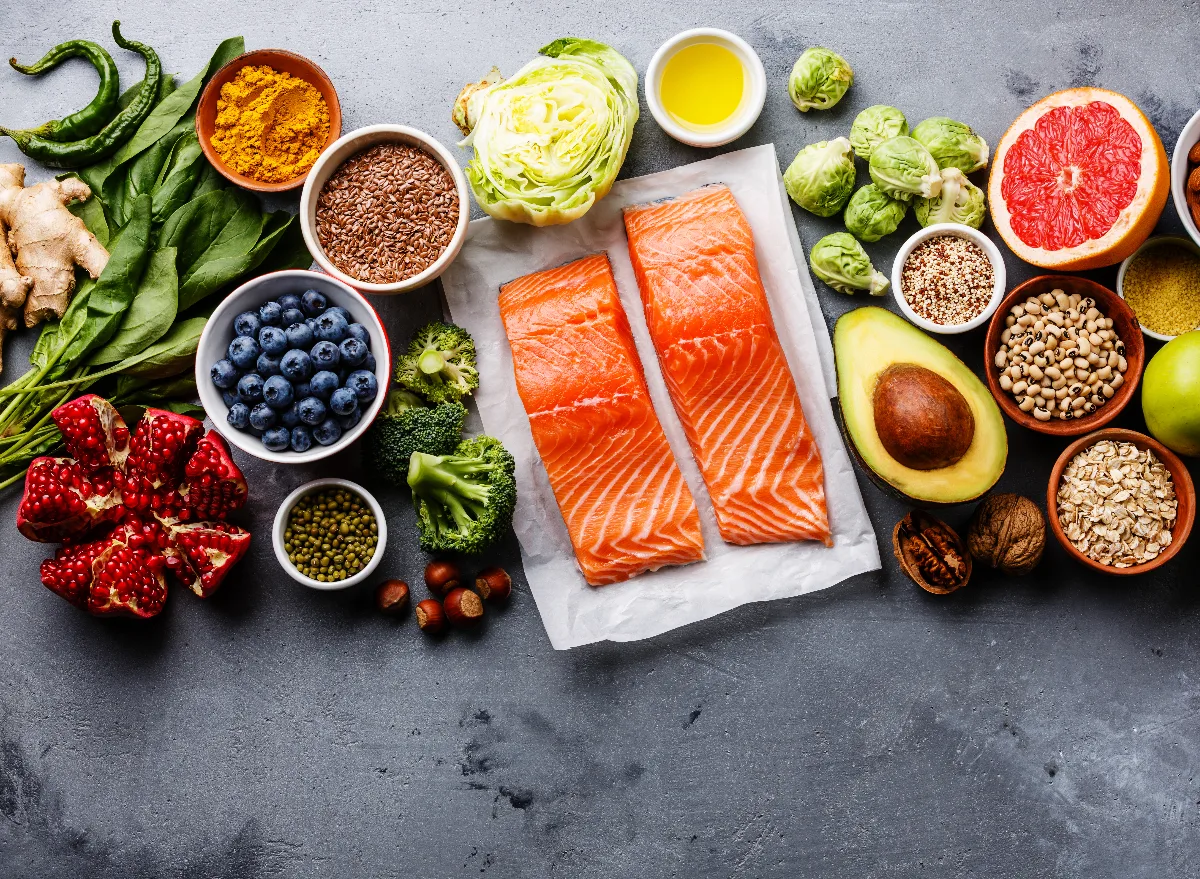Food, an essential aspect of human life, is not only a means of sustenance but also a reflection of our culture, history, and environment. It plays a vital role in our health, social interactions, and economic well-being. The journey of food from the farm to our plates is a fascinating and complex process, influenced by technological advancements, cultural practices, and consumer behavior. In this article, we delve into the diverse world of food, exploring its various facets and significance in our lives.
1. Introduction
Food is the fuel that powers our bodies and minds, providing the necessary nutrients for growth, repair, and overall well-being. Beyond its nutritional value, food holds a significant place in our hearts, connecting us with our heritage and traditions. In this article, we will explore the multifaceted nature of food, from its cultural importance to the impact of modern food production and consumption on our health and the environment.
2. The Importance of Food in Our Lives
Nutrition and Health
Nutrition is the foundation of a healthy life. A balanced diet comprising essential nutrients, vitamins, and minerals is crucial for maintaining good health and preventing various illnesses. We will delve into the significance of a well-rounded diet and how it impacts our physical and mental well-being.
Social and Cultural Significance
Food is deeply intertwined with our social lives and cultural practices. Different regions and communities have their unique culinary traditions, which are often passed down through generations. We will explore how food fosters a sense of community and identity, bringing people together in celebrations and gatherings.
Economic Impact
The food industry is a significant contributor to the global economy. From agriculture and food production to distribution and restaurants, it generates employment and economic growth. We will examine the economic aspects of the food sector and its role in trade and commerce.
3. Different Types of Food
Fruits and Vegetables
Fruits and vegetables are a rich source of vitamins, minerals, and antioxidants. We will discuss the importance of incorporating these natural wonders into our diets and how they promote overall health.
Grains and Cereals
Grains and cereals are staple foods for many cultures worldwide. We will explore their nutritional value, cultural significance, and the different ways they are prepared and consumed.
Dairy Products
Dairy products are a significant source of calcium and other essential nutrients. We will discuss the benefits of dairy consumption, along with potential health concerns and alternative options for those with dietary restrictions.
Protein Sources
Proteins are vital for muscle growth, tissue repair, and enzyme production. We will explore various protein sources, including meat, fish, legumes, and plant-based alternatives, and their role in a balanced diet.
4. The Evolution of Food and Eating Habits
Historical Perspective
The history of food dates back thousands of years, and the way humans sourced, prepared, and consumed food has evolved significantly over time. We will take a journey through history, exploring the diets of ancient civilizations and how they have shaped our present food habits.
Modern Changes
The advent of industrialization and technological advancements has transformed the food industry. We will discuss the impact of modernization on food production, processing, and convenience.
Globalization and Food Diversity
Globalization has made it possible for us to enjoy diverse cuisines from around the world. We will delve into the cultural exchange of food, the fusion of flavors, and the challenges of preserving traditional diets in a globalized world.
5. Food Production and Agriculture
Farming Techniques
Modern agriculture employs various farming techniques to meet the demands of a growing population. We will explore conventional farming, organic practices, and the debate around genetically modified crops.
Sustainable Agriculture
The importance of sustainable agriculture has gained prominence due to environmental concerns. We will discuss the principles of sustainable farming and its potential to address food security challenges.
Food Supply Chain
The journey of food from farm to fork involves a complex supply chain. We will examine the steps involved in food distribution, potential inefficiencies, and the role of technology in improving the supply chain.
6. Food Processing and Technology
Food Preservation Methods
Food processing techniques such as canning, freezing, and drying extend the shelf life of perishable items. We will explore the benefits and drawbacks of food preservation methods and their impact on nutritional content.
Impact on Nutrition
Processed foods have become a significant part of our diets. We will discuss the implications of heavily processed foods on our health and well-being and provide tips for making healthier food choices.
Controversies and Concerns
The food processing industry has faced scrutiny regarding additives, preservatives, and potential health risks. We will address common concerns and highlight the importance of informed consumer choices.
7. Food and Culture
Traditional Cuisine
Every culture boasts its distinct culinary heritage. We will explore the richness of traditional cuisine, the symbolism behind certain dishes, and the importance of preserving culinary traditions.
Food and Festivals
Festivals are often centered around special dishes and delicacies. We will examine how food plays a central role in cultural celebrations and reinforces communal bonds.
Regional Specialties
Different regions are known for their unique dishes and flavors. We will take a gastronomic tour, exploring famous regional specialties and the stories behind their origins.
8. The Impact of Food Advertising and Marketing
Influencing Consumer Choices
Food marketing wields significant influence over consumer preferences. We will discuss the tactics used by the food industry to promote products and how it shapes our eating habits.
Health Implications
Misleading food advertising can have adverse effects on our health. We will shed light on the importance of accurate nutritional information and responsible marketing practices.
Ethical Considerations
Food advertising also raises ethical questions, particularly concerning the promotion of unhealthy products to vulnerable populations. We will delve into the ethical aspects of food marketing.
9. Food Safety and Regulations
Foodborne Illnesses
Foodborne illnesses pose significant public health concerns. We will discuss common foodborne pathogens, preventive measures, and the role of regulatory agencies in ensuring food safety.
Food Inspection and Standards
Strict food safety standards are essential for consumer protection. We will explore how food inspections and quality control mechanisms function to maintain food safety.
Labeling and Consumer Awareness
Clear and accurate food labeling empowers consumers to make informed choices. We will examine the importance of transparent labeling and how it influences consumer decisions.
10. The Psychology of Food and Eating
Emotional Eating
Food is often associated with emotions, leading to emotional eating patterns. We will discuss the psychological factors influencing our relationship with food and ways to foster a healthy mindset.
Food Addiction
Compulsive eating and food addiction can have severe consequences on health. We will explore the concept of food addiction and potential treatments.
Mindful Eating
Mindful eating practices encourage us to savor each bite and be present during meals. We will explore the benefits of mindful eating and how it can help improve our relationship with food.
11. Food and the Environment
Environmental Footprint
The food industry has a significant impact on the environment, from greenhouse gas emissions to water consumption. We will discuss the environmental footprint of different food choices.
Sustainable Food Choices
Individuals can contribute to sustainability by making conscious food choices. We will provide practical tips for adopting a more sustainable diet.
Reducing Food Waste
Food waste is a global issue, contributing to resource depletion and environmental pollution. We will explore strategies to reduce food waste and its impact on our planet.
12. The Future of Food
Innovative Food Technologies
Advancements in technology are reshaping the food industry. We will discuss innovative food technologies, such as lab-grown meat and vertical farming, and their potential implications.
Plant-Based Diets
Plant-based diets are gaining popularity due to their environmental and health benefits. We will explore the rise of plant-based eating and its impact on the food landscape.
Food Security Challenges
The global population is projected to increase, posing challenges to food security. We will examine the complexities of ensuring adequate food supply for future generations.
13. Conclusion
Food is a fundamental aspect of our lives, with far-reaching implications for our health, culture, and environment. By understanding the diverse facets of food, we can make informed choices that positively impact our well-being and the planet. Embracing a mindful, sustainable, and culturally enriched approach to food will pave the way for a brighter, healthier future.

